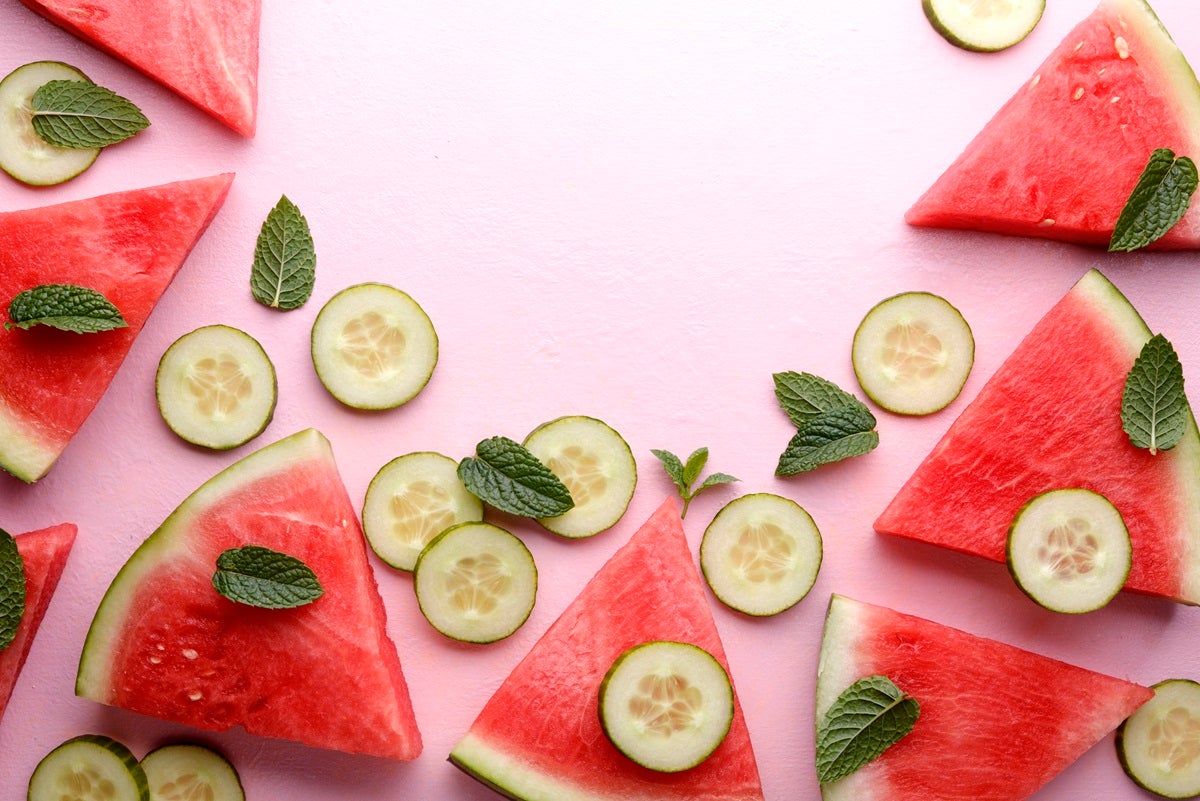Proper hydration is a cornerstone of good health, yet many of us often overlook its importance. While sipping water is key, the foods that we consume can also significantly enhance our hydration levels. In this guide, we explore 12 foods that hydrate, keeping you refreshed and energized throughout the day. From juicy fruits to crunchy vegetables, these options not only increase your fluid intake but also deliver essential vitamins and minerals. By incorporating these foods into your diet, you can improve your hydration and overall well-being.
The Importance of Hydration
Hydration plays a crucial role in health because water is vital for nearly every bodily function, including regulating temperature, transporting nutrients, and aiding digestion. Ensuring you are properly hydrated helps your cells function and keeps organs, tissues, and joints working optimally. Lack of hydration can hinder your body's performance, leading to health issues.
Even mild dehydration can cause headaches, fatigue, and decreased cognitive function, while severe dehydration might lead to muscle cramps, kidney stones, or heat-related illnesses. It's important to watch your hydration levels during hot weather or physical activity, as these conditions can increase fluid loss.
For athletes or those who exercise regularly, hydration is key to achieving peak performance. Adequate fluid intake boosts endurance, strength, and physical capability. Dehydration can lower stamina and coordination, raising the risk of injury. Staying hydrated before, during, and after exercise ensures efficient oxygen and nutrient delivery to muscles, promoting better performance and faster recovery.
Recommended Daily Water Intake
Staying hydrated is essential for health and well-being. Adults should generally aim to drink 8 to 10 cups of water daily, which is around 2 to 2.5 liters. However, personal needs vary depending on factors like age, gender, activity level, and climate.
Athletes or people who engage in intense exercise may require additional fluids to replace sweat loss, while those in hot climates might need increased water intake to remain hydrated.
Monitoring signs of proper hydration can ensure you're meeting your body's needs. Light-colored urine usually indicates good hydration, whereas dark yellow urine might suggest dehydration. If you experience dry mouth, fatigue, or dizziness, it could be time to up your fluid intake. Incorporating hydrating foods, such as fruits and vegetables, can also boost your overall water intake. These foods provide hydration along with essential nutrients supporting your health.
Best Foods for Hydration
Hydration is vital for overall health, and certain foods can dramatically increase your daily water intake. Here’s a list of top foods that hydrate, alongside their water content percentages and nutritional benefits:
1. Cucumber (95% water) - Refreshing and low in calories, cucumbers offer antioxidants that enhance skin health and hydration.
2. Watermelon (92% water) - Loaded with vitamins A and C, this sweet fruit is a fantastic hydrating choice, especially in the summer.
3. Strawberries (91% water) - Rich in fiber and vitamin C, strawberries support the immune system while keeping you hydrated.
4. Cantaloupe (89% water) - Providing vitamins A and C, cantaloupe also offers potassium, which helps maintain fluid balance.
5. Spinach (91% water) - Packed with iron and magnesium, spinach is hydrating and beneficial for energy levels.
To incorporate these foods into your diet, try adding sliced cucumber to salads, blending watermelon into smoothies, or enjoying strawberries as a snack. Create a refreshing fruit salad with cantaloupe and strawberries, or add spinach to sandwiches and wraps for a nutritious boost. Integrating these foods into your meals not only enhances hydration but also supports your overall health.
Effective Hydration Tips
Maintaining hydration is crucial for health, and including water-rich foods in your meals can significantly increase your fluid intake. Start by adding fruits and vegetables with high water content to your daily diet, like cucumbers, watermelon, strawberries, and lettuce, which provide hydration alongside essential vitamins and minerals. Create refreshing salads, smoothies, or infused water to enrich your meals with these hydrating foods.
If you lead an active lifestyle, hydration becomes even more critical. Consume water-rich foods before, during, and after physical activities. Snacking on a banana or grapes before workouts can replenish fluids and energy levels. Additionally, include soups and broths in post-exercise meals, as they hydrate and aid recovery.
Recognizing symptoms that suggest you may need to increase your fluid intake is important. Signs like dry mouth, fatigue, dizziness, and dark yellow urine indicate the need for more fluids. By proactively managing your hydration, you can support your body's functions and overall well-being.
While foods that hydrate are essential, complement them with hydrating drinks and the best daily electrolyte drink for optimal hydration. If you're searching for the best drink for hydration besides water, consider the best electrolyte drink for hydration to maintain your fluid levels effectively.

